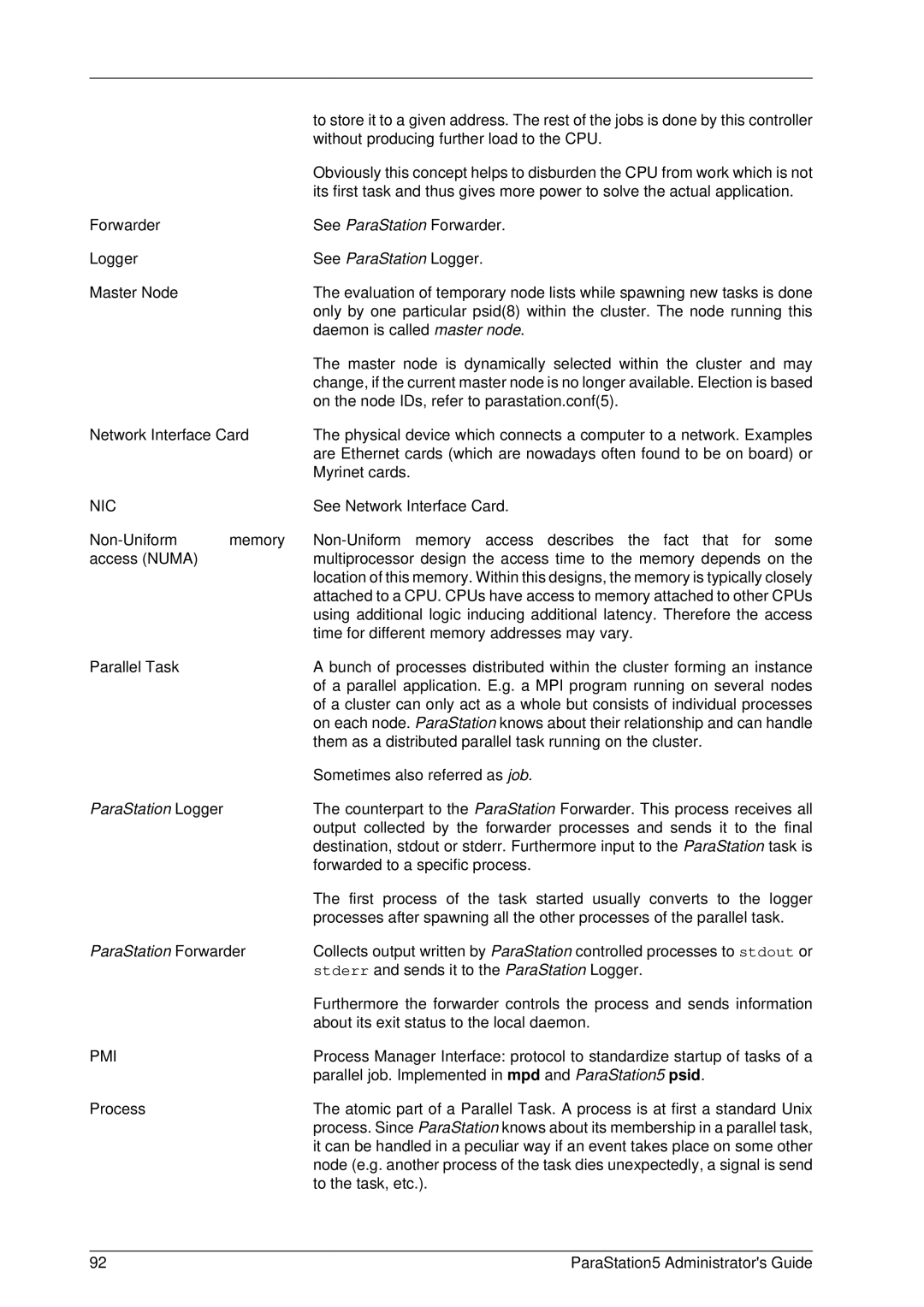
|
| to store it to a given address. The rest of the jobs is done by this controller |
|
| without producing further load to the CPU. |
|
| Obviously this concept helps to disburden the CPU from work which is not |
|
| its first task and thus gives more power to solve the actual application. |
Forwarder |
| See ParaStation Forwarder. |
Logger |
| See ParaStation Logger. |
Master Node |
| The evaluation of temporary node lists while spawning new tasks is done |
|
| only by one particular psid(8) within the cluster. The node running this |
|
| daemon is called master node. |
|
| The master node is dynamically selected within the cluster and may |
|
| change, if the current master node is no longer available. Election is based |
|
| on the node IDs, refer to parastation.conf(5). |
Network Interface Card | The physical device which connects a computer to a network. Examples | |
|
| are Ethernet cards (which are nowadays often found to be on board) or |
|
| Myrinet cards. |
NIC |
| See Network Interface Card. |
memory | ||
access (NUMA) |
| multiprocessor design the access time to the memory depends on the |
|
| location of this memory. Within this designs, the memory is typically closely |
|
| attached to a CPU. CPUs have access to memory attached to other CPUs |
|
| using additional logic inducing additional latency. Therefore the access |
|
| time for different memory addresses may vary. |
Parallel Task |
| A bunch of processes distributed within the cluster forming an instance |
|
| of a parallel application. E.g. a MPI program running on several nodes |
|
| of a cluster can only act as a whole but consists of individual processes |
|
| on each node. ParaStation knows about their relationship and can handle |
|
| them as a distributed parallel task running on the cluster. |
|
| Sometimes also referred as job. |
ParaStation Logger |
| The counterpart to the ParaStation Forwarder. This process receives all |
|
| output collected by the forwarder processes and sends it to the final |
|
| destination, stdout or stderr. Furthermore input to the ParaStation task is |
|
| forwarded to a specific process. |
|
| The first process of the task started usually converts to the logger |
|
| processes after spawning all the other processes of the parallel task. |
ParaStation Forwarder | Collects output written by ParaStation controlled processes to stdout or | |
|
| stderr and sends it to the ParaStation Logger. |
|
| Furthermore the forwarder controls the process and sends information |
|
| about its exit status to the local daemon. |
PMI |
| Process Manager Interface: protocol to standardize startup of tasks of a |
|
| parallel job. Implemented in mpd and ParaStation5 psid. |
Process |
| The atomic part of a Parallel Task. A process is at first a standard Unix |
|
| process. Since ParaStation knows about its membership in a parallel task, |
|
| it can be handled in a peculiar way if an event takes place on some other |
|
| node (e.g. another process of the task dies unexpectedly, a signal is send |
|
| to the task, etc.). |
92 | ParaStation5 Administrator's Guide |
